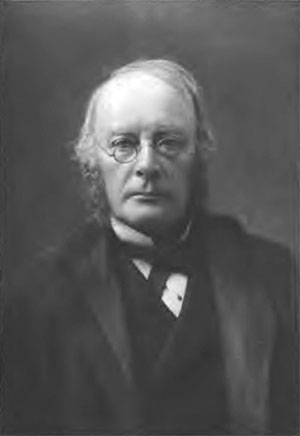Adieu to Brittany
Samuel Ferguson
RUGGED land of the granite and oak,
I depart with a sigh from thy shore,
And with kinsman’s affection a blessing invoke
On the maids and the men of Arvôr.
For the Irish and Breton are kin,
Though the lights of antiquity pale
In the point of the dawn where the partings begin
Of the Bolg and the Kymro and Gael.
But, though dim in the distance of time
Be the low-burning beacons of fame,
Holy Nature attests us, in writing sublime
On heart and on visage, the same.
In the dark-eye-lashed eye of blue-gray,
In the open look, modest and kind,
In the face’s fine oval reflecting the play
Of the sensitive, generous mind;
Till, as oft as by meadow and stream
With thy Maries and Josephs I roam,
In companionship gentle and friendly I seem,
As with Patrick and Brigid at home.
Green, meadow-fresh, streamy-bright land!
Though greener meads, valleys as fair,
Be at home, yet the home-yearning heart will demand,
Are they blest as in Brittany there?
Demand not,—repining is vain;
Yet would God that even as thou
In thy homeliest homesteads, contented Bretagne,
Were the green isle my thoughts are with now!
But I call thee not golden: let gold
Deck the coronal troubadours twine,
Where the waves of the Loire and Garomna are rolled
Through the land of the white wheat and vine,
And the fire of the Frenchman goes up
To the quick-thoughted, dark-flashing eye;
While Glory and Change, quaffing Luxury’s cup,
Challenge all things below and on high.
Leave to him—to the vehement man
Of the Loire, of the Seine, of the Rhone—
In the Idea’s high pathways to march in the van,
To o’erthrow, and set up the o’erthrown;
Be it thine in the broad beaten ways
That the world’s simple seniors have trod,
To walk with soft steps, living peaceable days,
And on earth not forgetful of God.
Nor repine that thy lot has been cast
With the things of the old time before,
For to thee are committed the keys of the past,
O gray monumental Arvôr.
Yes, land of the great Standing Stones,
It is thine at thy feet to survey,
From thy earlier shepherd-kings’ sepulchre-thrones,
The giant, far-stretching array;
Where, abroad o’er the gorse-covered lande,
Where, along by the slow-breaking wave,
The hoary, inscrutable sentinels stand
In their night-watch by History’s grave.
Preserve them, nor fear for thy charge;
From the prime of the morning they sprung,
When the works of young Mankind were lasting and large,
As the will they embodied was young.
I have stood on Old Sarum; 1 the sun,
With a pensive regard from the west,
Lit the beech-tops low down in the ditch of the Dun,
Lit the service-trees high on its crest:
But the walls of the Roman were shrunk
Into morsels of ruin around,
And palace of monarch and minster of monk
Were effaced from the grassy-fossed ground.
Like bubbles in ocean, they melt,
O Wilts, on thy long-rolling plain,
And at last but the works of the hand of the Celt
And the sweet hand of Nature remain.
Even so: though, portentous and strange,
With a rumor of troublesome sounds,
On his iron way gliding, the Angel of Change
Spread his dusky wings wide o’er thy bounds,
He will pass; there ’ll be grass on his track,
And the pick of the miner in vain
Shall search the dark void; while the stones of Carnac
And the word of the Breton remain.
Farewell; up the waves of the Rance,
See, we stream back our pennon of smoke:
Farewell, russet skirt of the fine robe of France,
Rugged land of the granite and oak!
